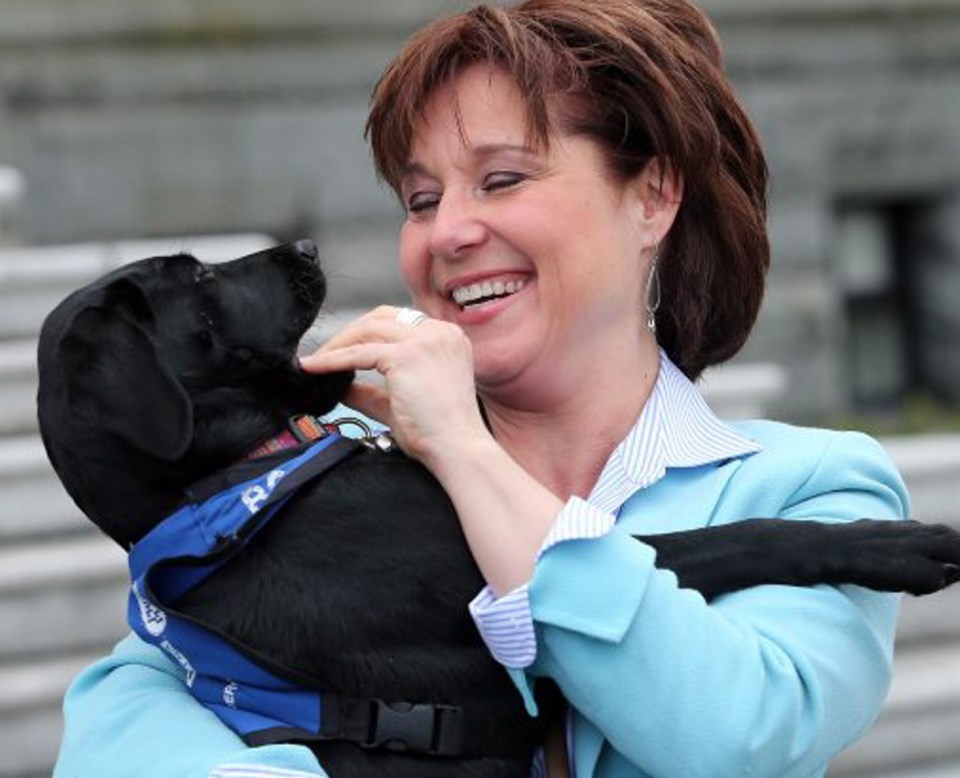Dear Tony: Would you please comment on strata council members who do not apply bylaws to themselves as they would to other owners.
Our president decided to get a dog that belonged to a family member. To get around the bylaw on pets, he claimed the pet was exempt because it was a therapy dog, necessary to his health.
The president did not recuse himself from the meeting when any decisions about the pet were being made, and since then two or three other owners have brought in dogs.
A group of owners have filed a complaint but the council have refused to do anything about this. We talked to a lawyer and our only recourse is to go to the Supreme Court to obtain an enforcement order at a cost of between $10,000 and $25,000.
This seems unfair just because a person in a position of power uses it for his own benefit.
How does a strata determine how a service dog is qualified?
Connie L.
Dear Connie: Your complaint about the council enforcement, or rather failure to enforce bylaws against each other, is very common.
Strata council members who use their power to gain personal benefits and exemptions are the same council members who refuse to comply with the Strata Property Act, regulations and bylaws of the strata corporation.
A conflict of interest is simple enough to understand, especially when the result is so blatant. It is the exercise of control or authority over an outcome where the party has a personal interest or benefit. The act sets out clear requirements for strata council members to declare an interest in a matter and to remove themselves from council meetings where a decision results in a benefit or enforcement decision affecting them or their strata lot. Basically, council members don’t get to decide their own bylaw enforcement or exemptions.
Your strata corporation does have other another option if you have a strata council unwilling to comply with the bylaws.
A group comprising at least 20 per cent of strata owners may petition for a special general meeting to remove the council, by majority vote, and elect a new council of people who will enforce the bylaws.
This course of action, however, relies upon the condo owners to take charge of their strata corporation and be willing to be elected to council and do the work involved.
You are correct in saying that dealing with a council that is either unfairly enforcing bylaws or refusing to enforce bylaws requires a Supreme Court action or arbitration. Either way it is going to be costly.
The good news is the Civil Resolution Tribunal will be in effect within the year and these types of compliance and enforcement issues, which people are avoiding, will be within the jurisdiction of the tribunal and resolved at a cost and time effective purpose.
The proposed Guide Dog and Service Dog Act recently introduced into the legislature will also be very helpful for strata corporations as it sets out qualifications for service animals. The new act sets out to limit certification to dogs only, and no other animals, to recognize both guide dogs for the visually impaired and other service dogs for individuals with other disabilities, to require a high training standard for certified dogs, to provide an option for dogs to be tested by a designated third party if they were not trained at a facility that is accredited by either Assistance Dogs International or the International Guide Dog Federation, to extend public access rights to certified dogs in training, extend tenancy rights to include strata properties and retired certified dogs that continue to reside with their handlers, and to increase the existing penalties and create a new offence of falsely purporting to be a certified team.
In other words, once this act is in place, your council president will have to have proper certification for his animal or he will find himself breaking the law.
Tony Gioventu is executive director of the Condominium Home Owners’ Association. The association’s website is www.choa.bc.ca. Send emails to [email protected].



